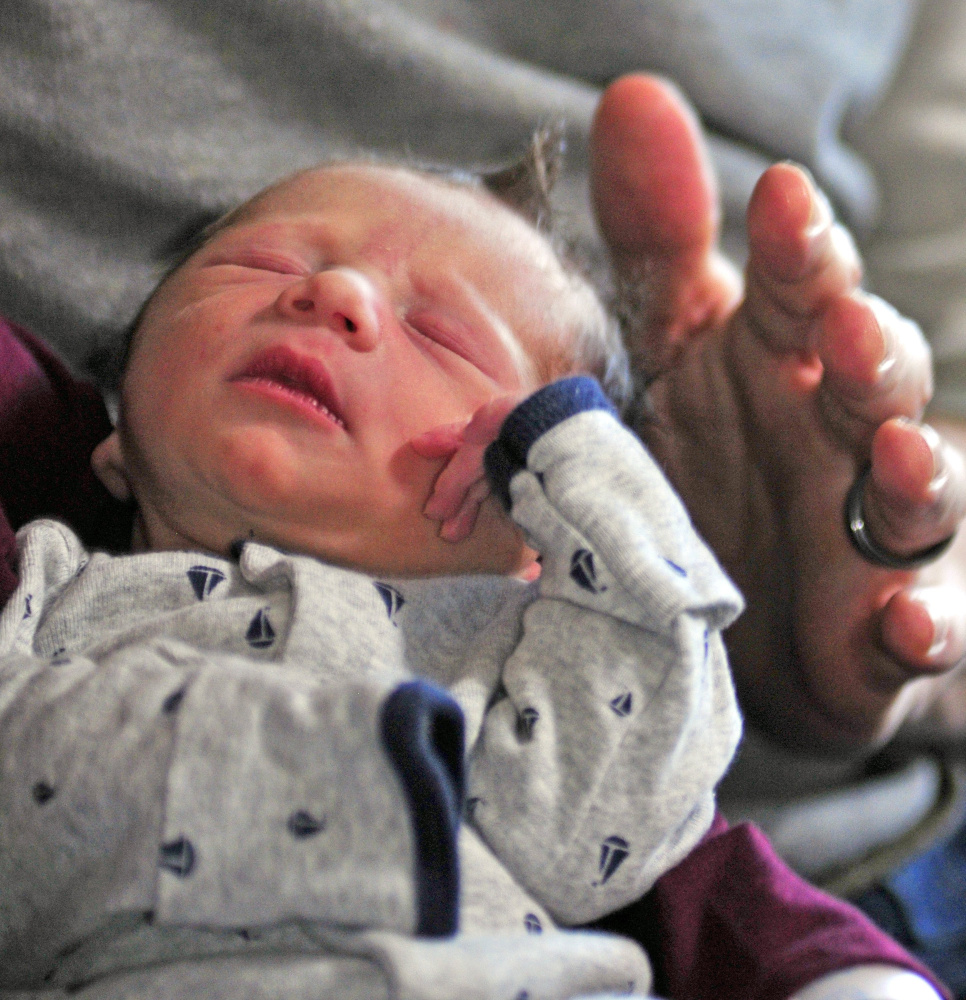For women grappling with substance use, navigating reproductive health care can be a nightmare. A web of barriers and restrictions, both implicit and explicit, make it difficult to access everything from birth control to abortion to pre- and postnatal care. Meanwhile, stigma infiltrates the public conversation, often dissuading women from obtaining needed health care and hindering efforts to tackle what we all agree is a major problem: the opioid crisis and its impact on Maine families.
Studies show rates of unintended pregnancy among women who use opiates range from 67 percent to 86 percent, versus roughly 31 percent to 47 percent in the general population. Empowering and educating women to manage fertility with contraceptive methods until they are ready for a pregnancy would greatly improve the health and futures of mothers, children and our communities. To do so requires a humane and informed approach.
A bill under consideration in Augusta offers one solution. L.D. 1063, “An Act to Reduce the Number of Substance-Exposed Infants,” is one part of what must be a sensitive, multi-pronged fight for women’s health and recovery.
The legislation would require MaineCare to cover counseling on and provision of postpartum birth control methods, including long-acting reversible contraceptives, for women who qualify for pregnancy-related care under MaineCare. Giving women the option to access high-quality contraception before they leave the hospital is proven to dramatically reduce the risk of an unintended second pregnancy.
Recognizing the importance of bodily autonomy, the legislation expressly prohibits any type of coercion and seeks to ensure that women are able to accept or deny family planning services without shame or fear of repercussions. This is a vital component of the bill, and an acknowledgment of a problematic history of coercive practices related to contraception, particularly aimed at poor women of color.
Of course, the way we talk about this problem will dictate how well we are able to solve it. In this case, we must look beyond the bill’s title and consider that both women and infants would benefit by enacting L.D. 1063. Increasing women’s access to convenient, easily reversible and long-lasting forms of contraception gives them more control over their reproductive futures, and, in the case of opioid-dependent women, would help avoid unplanned pregnancies that could be affected by substance use.
The proposal also calls for outreach and educational programs regarding family planning for those at risk of using substances during pregnancy. (This, too, must be carried out in such a way that emphasizes “the right to individual self-determination regarding family planning and childbearing.”)
This is a good start. But women dealing with poverty, substance use and ensuing stigmatization often lead unpredictable and precarious daily lives rife with obstacles to prioritizing and obtaining contraception. We need to reach out with multiple avenues of support.
That’s why Maine Family Planning is partnering with substance treatment and harm-reduction programs, such as the Portland Needle Exchange, to launch the Reproductive Empowerment Project, an initiative that will combine values-free outreach and education with same-day clinical services via telemedicine. We’ll meet women where they are (drug-treatment programs, needle-exchange programs, pre-release programs for women transitioning from incarceration to independent living, group foster homes for older teen girls, safe homes for domestic violence survivors or gender-specific sober houses), link them up through our telemedicine system to one of our nurse practitioners, and be able to distribute oral contraception, on the spot, in addition to an array of other reproductive health services.
In many cases, the rhetoric around substance use causes women who use opiates to feel isolated and ashamed to seek help. Often, legitimate fear of criminal charges or Child Protective Services removing children from their custody creates a general mistrust of health professionals who may either stigmatize people using drugs or misunderstand them. L.D. 1063 and the Reproductive Empowerment Project are just two attempts to remove these barriers to care. More forward-thinking solutions, informed by those with lived experience of addiction and parenting, are necessary.
As Maine and the nation continue to fight the opioid epidemic, we must embrace holistic solutions that dignify women and children and advance access to all forms of health care.
Zoe Odlin-Platz is a community health promotion specialist at the Portland Needle Exchange, and George A. Hill is president and CEO of Augusta-based Maine Family Planning, which provides reproductive health services at 18 health centers throughout the state.
Send questions/comments to the editors.



Comments are no longer available on this story